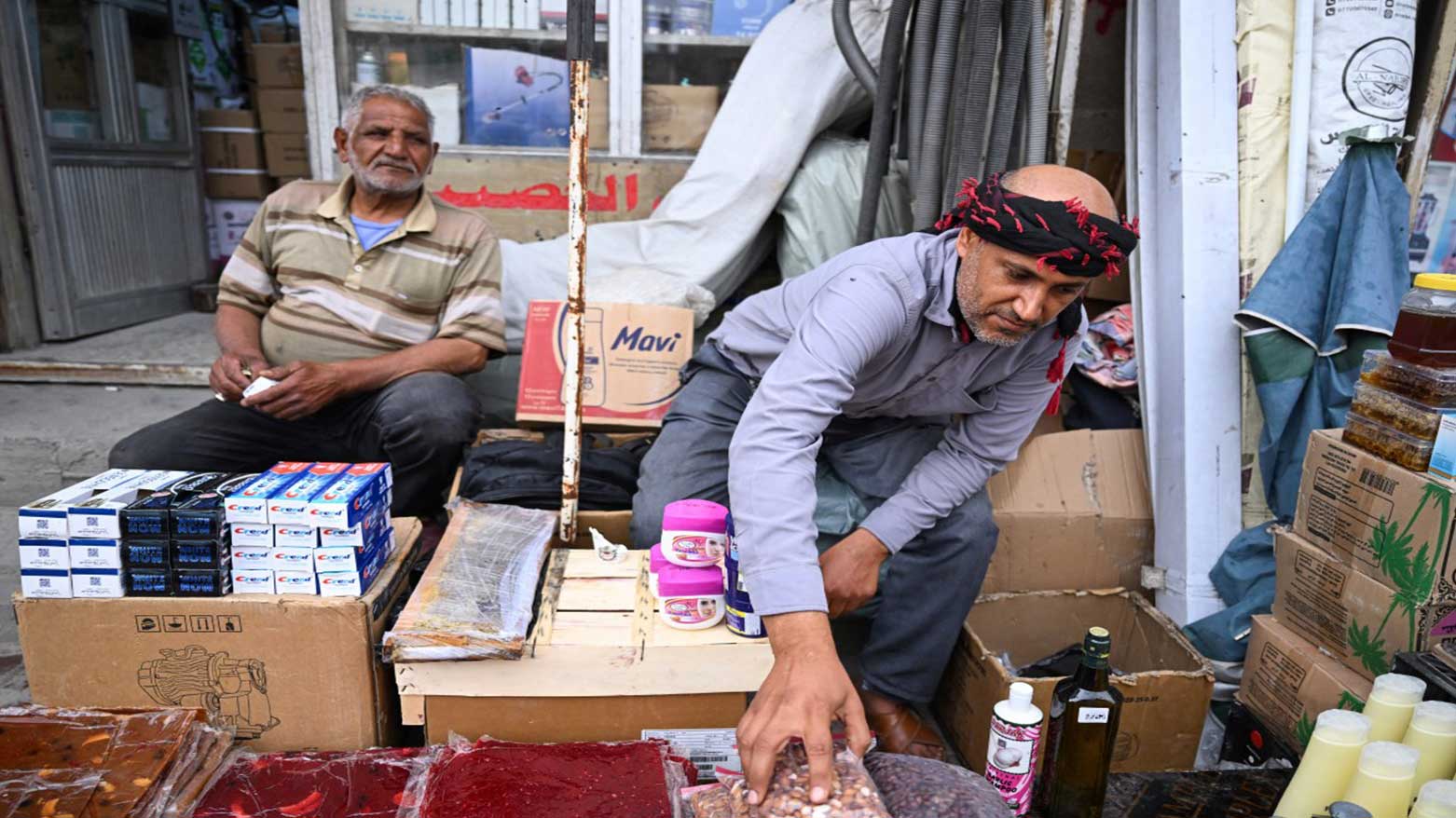Sanctions-Stricken Iranians Find Economic Lifeline in Iraq’s Bustling Border Markets
Last month, Iran’s annual inflation rate surged by more than 32%, further intensifying a financial crisis that has driven many Iranians — including elderly vendors and single mothers — to seek an economic lifeline in neighboring Iraq.

ERBIL (Kurdistan24) — Faced with a collapsing currency and punishing inflation at home, Iranian vendors are increasingly turning to Iraq’s markets in a desperate bid to make ends meet — a trend that has transformed cities like Basra into commercial sanctuaries for struggling traders from across the border, according to a report by AFP.
Each week, dozens of Iranian peddlers cross into southern Iraq via the Chalamja border crossing, hauling everything from fresh produce and household essentials to cooking oil and poultry. Among them is Alawi, a 36-year-old Iranian trader who journeys to Basra every Friday, hoping to earn what is now nearly impossible back home — a reliable income.
“Back in Iran, I tried selling my produce in local markets, but no one was buying. The goods spoiled, and I lost everything,” said Alawi, who requested his surname be withheld for fear of repercussions in Iran. “Here, I can make $30 to $50 a day. That’s a big deal when you convert it into rials.”
The severe economic downturn in Iran was largely triggered by the reimposition of US sanctions in 2018 during Donald Trump’s first term presidency. The move rolled back earlier relief measures tied to Iran’s nuclear deal and sent the Iranian rial into free fall, intensifying inflation and unemployment.
Last month, Iran’s annual inflation rate surged by more than 32%, further intensifying a financial crisis that has driven many Iranians — including elderly vendors and single mothers — to seek an economic lifeline in neighboring Iraq. For many, the cross-border trade offers a rare source of financial relief.
Markets That Bridge Survival
Basra’s open-air markets now teem with Iranian sellers offering discounted goods that appeal to Iraqi shoppers looking for bargains. Among the vendors is 17-year-old Milad, who has been running a small household goods shop with his mother for the past two years. “The situation is really tough back home. People can’t find jobs, and even if they do, the money is worthless,” he said.
The economic dynamics of southern Iraq, particularly Basra’s proximity to Iran’s oil-rich Khuzestan province, have made the region a hotspot for informal trade. Many residents on both sides of the border speak Arabic and share cultural traditions, making cross-border commerce smoother and more appealing.
According to Hayder al-Shakeri, a Middle East expert at Chatham House, this informal trade has grown significantly over the past decade. “It’s a vital lifeline for Iranians, particularly those from working-class backgrounds. Earning in dinars or even US dollars provides a financial buffer against Iran’s spiraling economic conditions,” he said.
Struggles, Tensions, and Competition
Despite the opportunity Iraq offers, the journey is far from easy. Iranian vendors frequently report harassment at the border, long waits, and, at times, forced removals by Iraqi authorities. “They insult and mistreat us,” said Umm Mansur, a 47-year-old mother of five who joined the ranks of itinerant traders six months ago. “But I’ll endure it — I make four times what I could at home.”
The influx of foreign traders has also stirred unease among local Iraqi vendors, some of whom see the competition as unfair. “Security forces sometimes crack down and remove the Iranian sellers,” said Shakeri, “but they always come back. They have no other choice.”
Still, for Iraqi shoppers like Abu Ahmad, a 55-year-old math professor, the presence of Iranian goods is a welcome addition. “Their ‘geymer’ is not only better than ours — it’s cheaper too,” he said, referring to the cream traditionally eaten with bread and honey. “They sell it for 12,000 dinars, while the local version costs 16,000.”
A Lifeline, Not a Solution
While Iranian vendors find temporary relief across the border, the deeper issues remain unresolved. Nuclear negotiations between Iran and the US recently resumed in Oman, with Tehran demanding the lifting of sanctions as a primary condition for progress.
Until then, Iraq’s markets will continue to serve not just as centers of trade, but as symbols of resilience and economic desperation for thousands of Iranians forced to cross borders to survive.